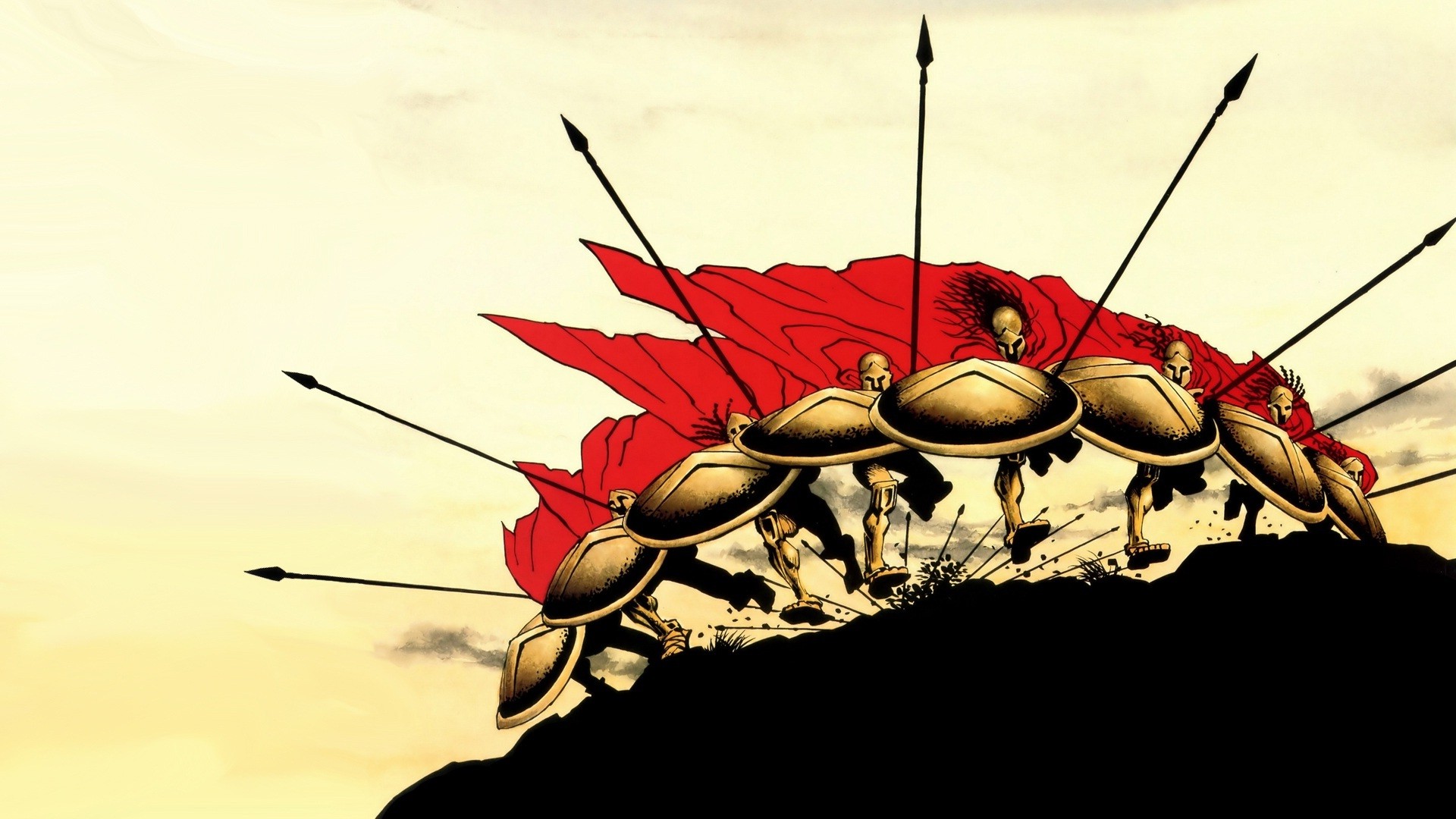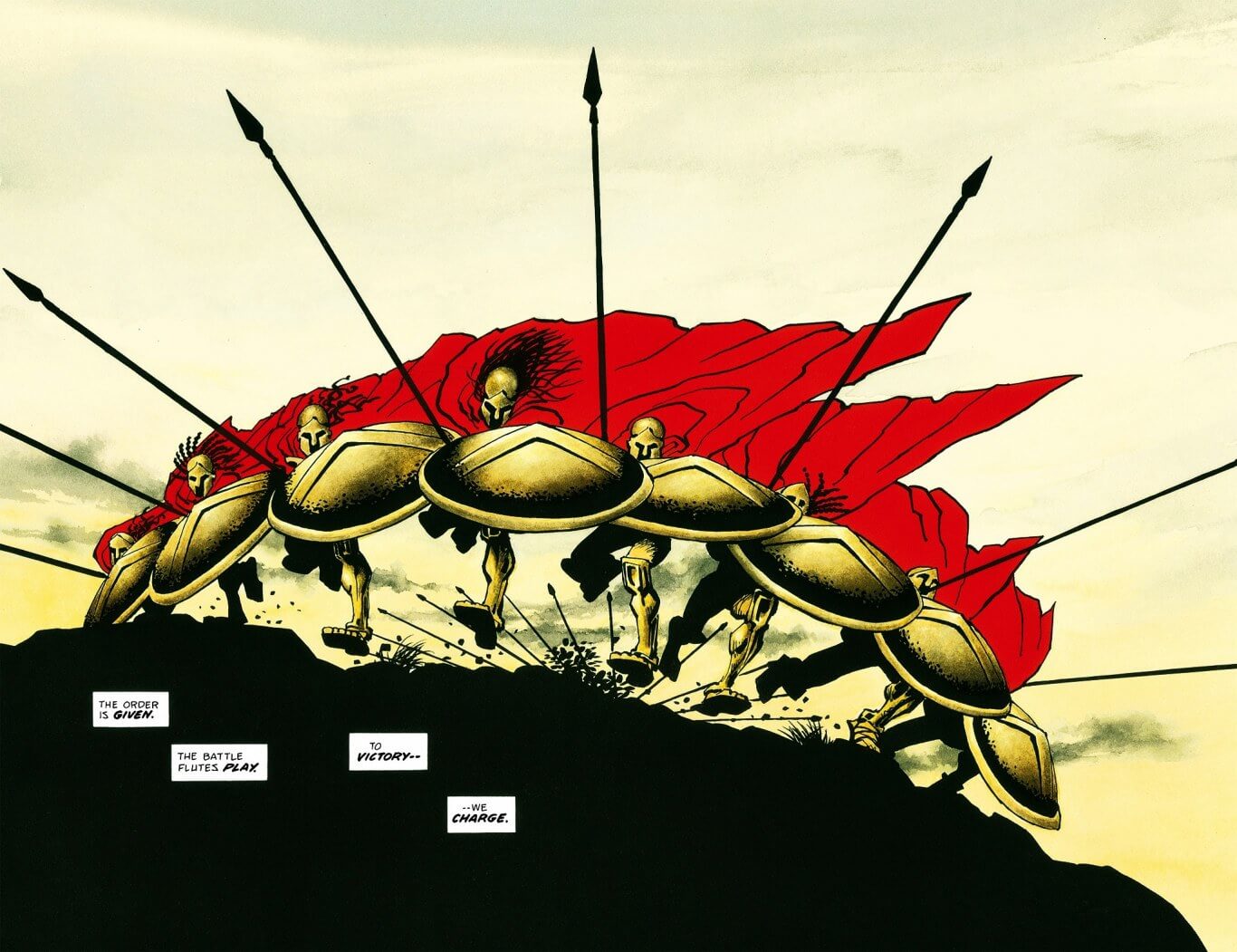

This volume and the resulting movie have been the source of some controversy since their respective releases. This volume would also serve as the inspiration for the 2007 film adaptation (also called 300) directed by Zach Snyder and produced by Frank Miller. The tale ends a year later at the battle of Plataea where a now-united Greek army prepares for the final battle against Xerxes. This betrayal leads to the outflanking of the remaining Spartan soldiers, and their inevitable deaths on the third day. The Spartans maintain a stand-still, holding off Xerxes' forces for two full days at a narrow pass known as the Hot Gates before the deformed and treacherous Ephialtes betrays the Spartans to Xerxes. King Leonidas leads a Spartan army of only 300 men into battle against the army of Xerxes I of Persia, a force outnumbering them by thousands to one. The reader can see and feel the harshness of both the Grecian landscape and Sparta's battle-worshipping culture, as Miller presents the complex historical moment facing the 300.300 is Frank Miller's famous retelling story of the battle of Thermopylae. Form and content are ideally wedded: Miller's writing is stark, his drawings moody and dramatic, and intensified by Varley's grimly appropriate palette of earth and blood. The Persian King Xerxes is represented as majestically African, his body covered in a gaudy and bejeweled network of meticulously rendered chains and bracelets. His drawings of the bearded Leonidas are pensive and starkly imperial. Miller clearly isn't as interested in being a historian as he is in telling a story, but his portrayal of the ancient world is compelling. A renowned comics artist and writer known for hard-boiled stories of almost operatic intensity and stylishly overwrought violence, Miller (Sin City) injects his own brand of graphic sensationalism into this ancient tale of national survival.

This is clearly the inspiration behind Miller's attempt to place this epic tale in the context of a graphic novel. While the battle bought the Greeks enough time to defeat the mighty Persians, it was more important for the metaphor it created: occasionally one has to lose to win. To no one's surprise, the Spartans were destroyed. The Battle of Thermopylae ranks as one of the ancient world's most important events, where Spartan King Leonidas and his 300-man bodyguard met the massive army of Emperor Xerxes of Persia, who intended to add Greece to his empire.


 0 kommentar(er)
0 kommentar(er)
